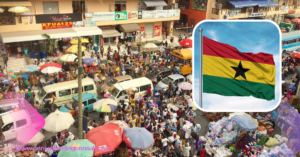
Optimizing Player Acquisition Strategies for iGaming Operators
iGaming operators! Are you looking for ways to attract and retain players in a crowded market? You’re in the right place! We have 12 powerful strategies to help you optimize your player acquisition efforts and stay ahead of the competition.
1. Segmented Marketing: Divide and conquer! Segment your target audience based on demographics, behavior, and preferences. Then, create targeted campaigns that speak directly to each group’s needs and interests.
Example: A sportsbook operator creates separate campaigns for football and basketball fans, offering tailored promotions and odds boosts for each group.
2. Influencer Marketing: Partner with social media influencers or streamers who have a large following in the iGaming niche. They can promote your brand, share their experiences, and provide social proof to attract new players.
Example: A casino operator partners with a popular YouTube streamer who focuses on slot games. The streamer promotes the operator’s newest slot release, encouraging their followers to give it a try.
3. Content Marketing: Create informative, engaging, and entertaining content that educates and entertains potential players. This can include blog posts, videos, podcasts, or social media content.
Example: A poker operator creates a blog series on poker strategy, attracting newcomers and experienced players alike. The blog drives traffic to the operator’s website, increasing brand visibility and acquisition.
4. Referral Marketing: Implement a referral program that incentivizes existing players to refer friends and family in exchange for rewards, bonuses, or other perks.
Example: A bingo operator launches a referral program, offering existing players a £10 bonus for each friend they refer, up to a maximum of £50.
5. Social Media Contests: Host social media contests or giveaways that encourage engagement and attract new followers. Participants can enter by following the operator’s social media accounts, sharing a post, or answering a trivia question.
Example: A casino operator runs a “Guess the Jackpot” contest on Twitter, where followers can guess the jackpot amount for a specific slot game. The winner receives a bonus or free spins.
6. Partnerships and Collaborations: Collaborate with other businesses, organizations, or charities to reach new audiences and create brand awareness.
Example: A sportsbook operator partners with a popular sports media outlet to offer exclusive promotions and content to their audience.
7. Optimized Landing Pages: Create dedicated landing pages for specific campaigns or promotions, ensuring a seamless user experience and clear call-to-action.
Example: A casino operator creates a landing page for a new slot game, featuring a prominent “Play Now” button, game details, and eye-catching visuals.
8. Personalization: Use data and analytics to tailor the player experience, offering personalized promotions, offers, and game recommendations based on individual player behavior.
Example: A poker operator uses machine learning algorithms to suggest personalized poker variants and stakes to players based on their playing history and preferences.
9. Live Events and Activations: Host live events, tournaments, or activations that create buzz and attract new players. These can be online or offline events, depending on the target audience.
Example: A sportsbook operator hosts a live fantasy football draft event, featuring expert analysis, giveaways, and exclusive promotions.
10. Gamification and Loyalty Programs: Implement gamification elements, such as leaderboards, challenges, or rewards, to incentivize players to engage with the platform and retain them.
Example: A casino operator launches a loyalty program with a rewards store, where players can redeem points for bonuses, free spins, or luxury items.
11. Affiliate Marketing: Partner with affiliates who promote the operator’s brand, products, or services in exchange for commissions or rewards.
Example: A sportsbook operator partners with a popular affiliate network, offering commissions for each new player referred to their platform.
12. Search Engine Optimization (SEO): Optimize the operator’s website and content for search engines, improving visibility and attracting organic traffic.
Example: A bingo operator optimizes their website for keywords related to bingo games, promotions, and tutorials, increasing their search engine ranking and attracting new players.
By incorporating these strategies into your player acquisition efforts, you’ll be well on your way to attracting and retaining players, driving revenue and growth in a competitive market.
By: Nasif K Balinda



